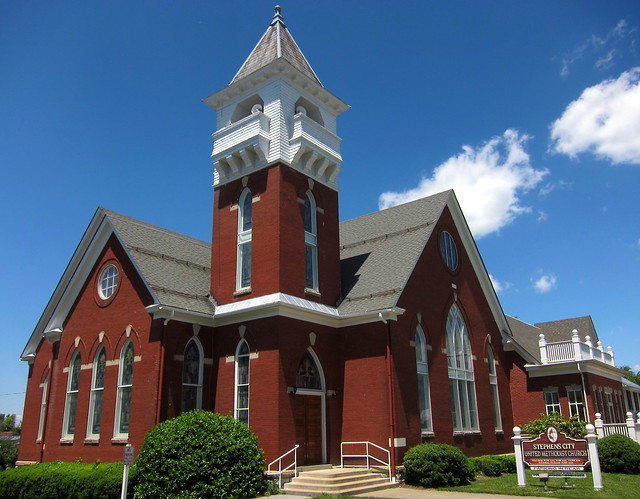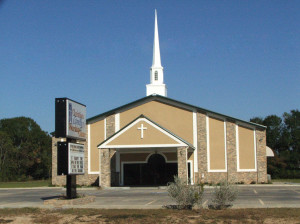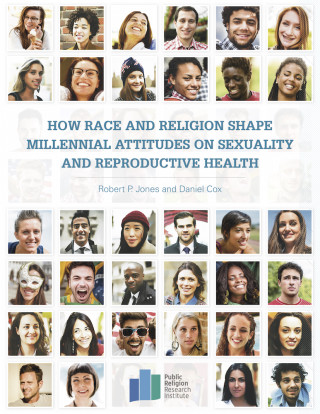 This article attempts to give an overview of student credit card use by presenting some statistics taken from Sallie Mae’s National Study of Usage Rates and Trends of Undergraduate Student Credit Card Use released in April 2009.
This article attempts to give an overview of student credit card use by presenting some statistics taken from Sallie Mae’s National Study of Usage Rates and Trends of Undergraduate Student Credit Card Use released in April 2009.
Tag Archives: emerging adults
Millennials move towards Digital News – and they are willing to Pay for it.
NEW YORK — In a world flush with free information, some young people are still willing to shell out for news they read.

© 2013 Esther Vargas, Flickr | CC-BY-SA | via Wylio
A recent poll shows that 40 percent of U.S. adults ages 18-34 pay for at least some of the news they read, whether it’s a print newspaper, a digital news app or an e-mail newsletter. Another 13 percent don’t pay themselves but rely on someone else’s subscription, according to the survey by Media Insight Project, a collaboration of the American Press Institute and the Associated Press–NORC Center for Public Affairs Research. Older Millennials are more likely than younger ones to personally pay for news.
Here are some points to consider:
- “The proliferation of free news online and new ways for advertisers to reach people has besieged publishers of newspapers and magazines.”
- “Some popular news sites, particularly newer online-only outlets like Huffington Post and BuzzFeed, remain free to all.”
- “Millennials have shown that they are willing to engage in content that interests them,” Herndon said (a professor of journalism).
What does this mean for the church?
- Brand is often more important than price. Millennials who are willing to pay money for news know how to obtain this same news for free from other sources. These Millennials are interested in a specific perspective or “brand” of news.
- Many churches spend resources on their on-line presence without examining the results of that work. Does your church know who is utilizing your electronic media? Many churches have gone with current technologies, but the content does interest Millennials (for various reasons).
- I believe their willingness to pay for digital news is driven by their value of conservation of natural resources and their technology-driven lifestyle. In the church world, the paper bulletin still reigns, but even its days may be coming to an end.
Dr. G. David Boyd is the Founder and Managing Director of EA Resources.
So You Want to Start a Young Adult Ministry

The Millennial Exodus – Article by Doug Devor
Emerging adults are leaving the church. If this is new information to you then, please read THIS.
If you believe it isn’t true, please read THIS.

© 2013 NCinDC, Flickr | CC-BY-ND | via Wylio
I have used the term to describe this transition as, “The Millennial Exodus.” Many authors, bloggers, pastors, and church leaders have written on this topic. If you want to see some of these various articles, I have have them tagged as the ” Millennial Exodus.”
Here is a new voice to add to the discussion by Doug Devor. The full article is HERE.
The reasons given by the author are:
1. We are overprotective. As the church we need to allow young people to take the reins and take imaginative risks. (I agree! Young Adults should be given full Autonomy!)
2.We are shallow. As the church we need to focus on the depth of discipleship instead of the number attending our programs.
3.We are anti-science. As the church we need to help foster the idea that science and faith are not incompatible.
4.We are repressive. As the church we need to focus less on the rules that people should follow and more on the grace that Christ provides.
5.We are exclusive. As the church we need to invite people in and actually want them to stay, no matter who they are. We need to be more open-minded, tolerant and accepting.
6. We are doubtless. As the church we need to let young people doubt and then answer the hard questions that they have about faith.
If you are a Millennial, and you would like to add your voice to the conversation. Please contact me at gdavid@earesources.org. Here is a link to receive more information.
Young Adult Unemployment – Does your church community care?
Earlier this week, I posted how an article that shared a Millennial’s journey through unemployment.
Emerging adults who are unemployed (or underemployed) will not break down the door to your church office asking for help. They will not demand that the church do anything for them at all. You might not even know they [unemployed emerging adults] exist.
They do exist. If your church wants to minister to Emerging adults, then we must seek ways to make a difference in their lives.
Here is a chart recently released by the Economic Policy Institute.

Here are some highlights from the article.
- …young workers always experience disproportionate increases in unemployment during periods of labor market weakness…
- Unemployment and underemployment rates among young graduates are improving but remain substantially higher than before the recession began.
- [These high rates of unemployment]… stems from weak demand for goods and services, which makes itunnecessary for employers to significantly ramp up hiring.
- Wages of young college and high school graduates are performing poorly—and are substantially lower today than in 2000. The real (inflation-adjusted) wages of young high school graduates are 5.5 percent lower today than in 2000, and the wages of young college graduates are 2.5 percent lower.
- The cost of higher education has grown far more rapidly than median family income, leaving students with little choice but to take out loans which, upon graduating into a labor market with limited job opportunities, they may not have the funds to repay.
- Graduating in a weak economy has long-lasting economic consequences. Economic research suggests that for the next 10 to 15 years, those in the Class of 2015 will likely earn less than if they had graduated when job opportunities were plentiful.
May God lead your community to be a place that understands and is willing to do what it takes to minister to Emerging adults.
D r. G. David Boyd is the Founder and Managing Director of EA Resources.
r. G. David Boyd is the Founder and Managing Director of EA Resources.
Responding to the Unemployed Millennials in Your Church
Here is a piece that was written by a Millennial that I recently met at a conference.
After high school, I went to a Technical College for a two-year Associates Degree in Law Enforcement. After Graduating in 2009, I started searching for a job. I applied for any job opening in Corrections to being a Police Officer.
After three years and over sixty applications I still did not have a job due to my lack of experience. During this time, I was living with my parents, and working part-time at Rainbow Foods to help pay my student loans.

© 2008 Erich Ferdinand, Flickr | CC-BY | via Wylio
As a young man, I faced constant discouragement and shame for not having a full-time job and living at home. People at church would always approach me with the same three questions, “What are you doing?”, “Where do you live?”, and “Where are you working?” People would keep saying things like, “just keep applying,” but these words were not encouraging.
After three years of applications, I felt the Lord was calling me back to school to get another degree. I continued my education on-line, and now have a B.A. Unfortunately, I still don’t have a job, and working part-time with student loans barely covers my loans.
Being 26 years old and living with you parents has some real challenges, but fortunately my parents are very supportive of me. Sometimes people will suggest that I once again go back to school, and get yet another degree because that job field is hard to get into, dying, shrinking, or because they think you should do something different.
However, more schooling and a higher debt load doesn’t seem hopeful.
I asked the writer some questions about how the church could help emerging adults in his position, and here are his responses.
What can the church do to help people who are young and jobless?
The church could help people who are young and jobless through having specific people checking in on them from month to month. They should be people who know how to ask the right questions, and equipped to help me in my journey. I think that they could also create connections so the congregation is aware of those looking for employment. Members of the church can be part of the network that leads emerging adults to their next job.
What could people say to those who are young and jobless?
People should be more careful how and what they say to those who are unemployed. I found the words, “I’m praying for you” encouraging, or “I am keeping an eye out for jobs for you.” The hardest questions are asking “where are you living” because I then have to tell them I still live with my parents – which comes with additional shame.
What do you want people to know or understand about yourself and others like you in the church?
I want people to understand that getting a degree and finding a job isn’t always easy. I myself never thought I would still be living at home at 26 without a fulltime job, and I think, people need to be more understanding at the difficulties facing emerging adults. Parents should understand that after graduation, their children might have to live at home while searching for a job – and it should be ok.
What keeps you going?
My motivation comes from God and my parents. I know God is there for me, and is providing for me through this journey. He always seems to provide encouragement when I need it the most. My parents are very supportive of me. They have sought to understand my situation, and defended me when people ask why they allow me to still live with them.
EA Resources is seeking contributions from Millennials who want the Church to hear their voice. If want to contribute, please contact us at gdavid@earesources.org. These pieces are tagged “Millennial Voices.”
Paying for Millennials to Speak about the Church
Many studies have been completed on why Millennials are leaving the church.
Many writers have pontificated on why Millennials are leaving the church. (Here is something that I wrote on this topic.)
 Both are important for discussing this issue, and moving us towards solutions. However, it is not enough.
Both are important for discussing this issue, and moving us towards solutions. However, it is not enough.
In order for us to understand Millennials and their love/hate relationship with the church, we must hear their voices.
EA Resources is looking for articles and videos that answer the question:
Why I left the church? or Why I have stuck with the church?
For articles and videos that we choose to purchase, the individual will be paid $100. Here are a few notes:
- The article/video will become property of EA Resources.
- The article/video may not have been previously published (unless it was on your personal blog/website).
- The article/video must be from someone between the ages of 18-28 due to our desire to hear from Emerging Adults.
- We will pay $100 for articles/videos accepted for publication.
- Please keep your submissions brief and powerful. Written submissions should be approximately 300 words. Videos should be under 5 minutes in length.
- Articles/videos can be submitted to Dr. G. David Boyd at gdavid@earesources.org.
If you know of a Millennial who can share their story well about either why they have left, or why they have stuck with the church, please share this article.
I look forward to hearing your voice!
 Dr. G. David Boyd is the Managing Director of EA Resources, a non-profit designed to help parents and churches minister to emerging adults.
Dr. G. David Boyd is the Managing Director of EA Resources, a non-profit designed to help parents and churches minister to emerging adults.
Millennials, Sexuality, and Reproductive Health Survey
New Research was released earlier this year discussing the views of Millennials towards sex and reproductive heath. It studied 2,314 Millennials between the ages of 18-34.
 Here is a link if you want to read it – Click Here!
Here is a link if you want to read it – Click Here!
Here is a link if you want to watch a video – Click Here! Warning – It is 2 hours long!
The 2015 Millennials, Sexuality, and Reproductive Health Survey was released on Friday, March 27 at The Henry J. Kaiser Family Foundation in Washington, D.C. by the Public Religion Research Institute.
It is a fascinating read for pastors, leaders, and parents of Emerging Adults. Here are a few fascinating notes:
- When evaluating the morality of sexual behaviors, millennials generally do not make black-and white judgments, but rather factor circumstances into their reasoning.
- On the issue of abortion, millennials strongly factor specific circumstances into their moral evaluations.
- Millennials view women having a full-time job as a less serious problem for families than men who concentrate too much on work.
- One-third (33%) of millennials are religiously unaffiliated, making it the single most common religious identity among this generation.
There is so much in this study, and I hope to dive more into this research in the weeks to come, and what it means for the church. If you want to support my research, please contact me, or donate here.
Dr. G. David Boyd is the Founder and Managing Director of EA Resources, a non-profit designed to equip parents and churches to minister to Emerging Adults.
What will we teach Millennials about Aging?

© 2011 Todd Petit, Flickr | CC-BY | via Wylio
This past week, I sat on my porch catching up with a long-time friend and emerging adult. While enjoying the Minnesota summer sun, we talked about life – the simple and complex. At one shift during the conversation, we discussed aging. Having just turned 28, he felt as if time had turned against him.
Humans hate aging. We spend billions of dollars in order to look and feel younger. I will not attempt to reverse this hatred towards aging and death; however, I believe that if anyone in our world can put a positive spin on aging and death – it is Christians. While we live in a society of growing “Nones” (Those claiming to be non-religious.), Christians claim a set of beliefs that offer another perspective.

© 2005 Andy / Andrew Fogg, Flickr | CC-BY | via Wylio
- We believe in an afterlife.
- We believe in an afterlife that is good.
- We believe in an afterlife that will reverse the pain, suffering, and blemishes of this world.
- We believe that this good afterlife is timeless.
Or at least, we say that we do. Most Christians avoid the topic of death and dying as if they hold no answers. I know that doubt filters in, and can cause us to stumble. However, we should regularly reflect on Jesus’ words,
“Do not let your hearts be troubled. You believe in God; believe also in me. My Father’s house has many rooms; if that were not so, would I have told you that I am going there to prepare a place for you? And if I go and prepare a place for you, I will come back and take you to be with me that you also may be where I am.”
Jesus knew his disciples would be troubled by an unknown future, and calls them to trust Him.
Our faith demands that we hold to a different view of the human experience to Millennials. One in which each phase of life is to be embraced (including dying) and enjoyed.
From our platforms and porches, we need to restore a vision for human death and aging. We need to cling to faith, and live out our lives in view of our beliefs about death.
A theologically sound view of aging will remove our distaste for it.
A theologically sound view of death will remove its sting.
Teaching and living this view is one Christian belief that will appeal to a world of growing “Nones” and Millennials.
Dr. G. David Boyd is the Founder and Managing Director of EA Resources.
5 Easy (Fairly Easy) Changes for Churches trying to welcome Emerging Adults!

Photo courtesy of Aaron Robert Photography. Copyright 2014. www.aaronrobertphotography.com
If you are a community that it looking to make some changes to attract emerging adults, here are a few ways that you can start without shifting your beliefs, or discussing it at a board meeting.
1. Design a website that welcomes them.
Your website will be the first encounter that most Emerging Adults will have with your church. As you look at your website, what does your church say, or what does it not say about emerging adults? Your website’s appeal is not based on being “hip” or “trendy”, but you need to understand what questions they will be asking. If you don’t know where to begin, drop me a note, and I will be glad to give you some thoughts. If Millennials are not visiting your church, then maybe your website provides plenty of reasons to stay away.
2. Open Avenues to SERVICE.
When an emerging adult enters your community, can they sense that emerging adults have opportunities to serve and lead? Or does your church have invisible signs saying, “Young Need Not Apply.” Seek to equip people of all ages regularly serving as greeters, ushers, communion servers, and speakers.
3. Refuse to speak negatively about adolescents or emerging adults.

Photo courtesy of Aaron Robert Photography. Copyright 2013. www.aaronrobertphotography.com
There is a desperate need within our world to change the metanarrative of human development. Within the church, many negative statements are made about adolescents and emerging adults. Are jokes made about adolescents? Are generations unfairly characterized such as being called techy (addicted to their phones), immature, or rebellious? Age-based humor should not be used.
4. Respond immediately and personally to requests for information.
Emerging adults are always in the midst of transition. They do not want to wait two months to serve or attend the next visitor’s meal or class. If they visited, invite them to coffee to discuss how they can further connect with your community. Assign this position to someone who is relationally-driven, and understands the needs of emerging adults.
5. Develop a unified voice on your current philosophy for emerging adults.
As a team, you must discus what happens once an emerging adult visits? If you don’t have a philosophy, here are some questions to get going (Click Here!).
Maybe you have covered these first steps, and haven’t seen any change. If you want me to help you or your team discover a philosophy of ministry that works for your community, contact me at gdavid@earesources.





